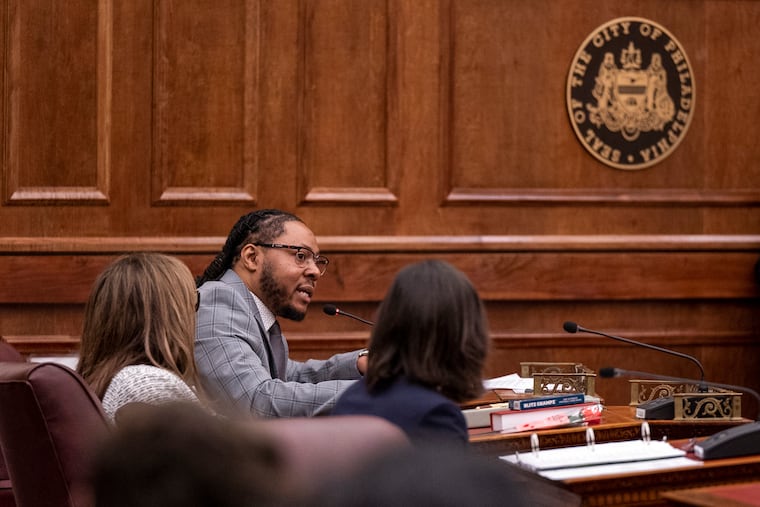City Council may subpoena Mayor Parker over Fairmount addiction center
The extraordinary move from Councilmember Jeffery Young comes a day after the Parker administration did not send a representative to testify during a City Council hearing about the use of the site.

Philadelphia lawmakers may subpoena Mayor Cherelle L. Parker and members of her administration to testify about how the city is developing a facility in North Philadelphia to house people in addiction.
City Councilmember Jeffery Young Jr. took the extraordinary step Thursday to introduce legislation allowing Council to compel the Parker administration to testify and produce documents about its use of a shelter at 2100 W. Girard Ave. The administration quietly added 90 beds and additional services to the facility last month.
The escalation of tension between Parker and Young comes less than six months after both Democrats took office in January. Philadelphia’s Home Rule Charter grants Council subpoena power, but it’s a step that is rarely taken, especially by a member seeking information from an administration led by his own party. There were audible gasps in Council’s chambers Thursday when Young introduced the legislation.
The authorization to hold hearings on the use of the facility and to issue subpoenas related to it passed Council without opposition Thursday. A spokesperson for the Parker administration did not immediately comment.
Young said his goal is to “provide some transparency to my constituents.”
“We’re just looking for clarity on what the expanded services are, specifically, so we can mitigate some of the negative quality-of-life issues that can stem from a facility that intakes folks with opioid and other drug addictions,” he said.
On Wednesday, a Council committee held a hearing on another piece of legislation Young introduced that would block the city from renewing its lease at the site, which is up in 2026. The Parker administration didn’t send a representative to testify during the hearing, but a top official said in written testimony that the administration opposes the measure.
» READ MORE: Philly City Council advances bill to block Parker administration addiction facility in Fairmount
Young said he was disappointed that no one from the administration appeared, and that the purpose of the bill was to “have a substantive conversation with the administration about the property.”
Parker has said her administration’s expansion of services at the site is part of a broader plan to bolster the city’s drug treatment options amid a crisis of drug use and homelessness. While her administration has focused on ending the open-air drug market in the city’s Kensington neighborhood, she has said her plan would address drug treatment availability across the city.
Young said he was not consulted before the administration expanded services at the site in his district, and hundreds of residents have expressed opposition, saying they fear threats to safety in the vicinity.
Parker said this week during an interview with The Inquirer’s editorial board that her administration should have met with Young before moving forward, saying, “we should have been more proactive in our communication.”
City Council President Kenyatta Johnson said Thursday that Young has a right to introduce legislation regarding development in his district, “and so that’s the direction he wants to go in terms of having a dialogue with the administration.”
“Hopefully they’ll come to some level of resolve,” Johnson said. “But as a district Council member, he has a right to represent his constituents and make sure there’s a level of transparency and accountability.”